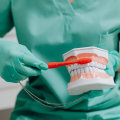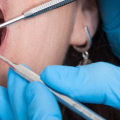Oral hygiene is one of the most important aspects of overall health, yet it is often overlooked in daily routines. Brushing, flossing, and regular dental check-ups may seem like simple tasks, but neglecting them can lead to serious and far-reaching health issues. Poor oral hygiene creates an environment where bacteria thrive, plaque builds up, and infections spread, ultimately affecting not just the mouth but also the entire body. Understanding what poor oral hygiene causes helps emphasize the importance of consistent care and professional attention, as the consequences extend far beyond cavities and bad breath.
Gum Disease and Tooth Loss
One of the earliest and most common results of poor oral hygiene is gum disease, which begins as gingivitis and can progress to periodontitis if left untreated. Gingivitis causes swollen, red, and bleeding gums, while advanced periodontitis can destroy the bone supporting the teeth, leading to tooth mobility and eventual loss. Once gum disease reaches this stage, treatment becomes more complex and costly. This condition is also linked to chronic inflammation, which has broader implications for overall health.
Cavities and Tooth Decay
Tooth decay is another major issue caused by inadequate oral hygiene. When plaque and bacteria are not regularly removed, acids erode the enamel, creating cavities that can worsen over time. Untreated cavities often lead to infections inside the tooth, requiring root canal treatments or extractions. Tooth decay not only causes pain and sensitivity but also impairs chewing, nutrition, and overall quality of life. Preventing cavities through daily oral care is far easier and less expensive than treating them once damage occurs.
Bad Breath and Aesthetic Concerns
Neglecting oral hygiene often results in halitosis, or persistent bad breath. This is caused by bacteria breaking down food particles in the mouth, releasing unpleasant odors. Stained teeth, tartar buildup, and gum problems also impact aesthetics, leading to self-consciousness and reduced confidence in social or professional settings. While these may seem like minor concerns, they can affect mental health and quality of life significantly, as people may avoid interactions or feel embarrassed about their appearance.
Systemic Health Complications
Perhaps the most alarming consequence of poor oral hygiene is its impact on overall systemic health. Research shows that oral bacteria and inflammation can contribute to serious conditions such as heart disease, diabetes, respiratory infections, and even adverse pregnancy outcomes. Bacteria from the mouth can enter the bloodstream, spreading infection and causing complications in other organs. This connection between oral and systemic health highlights the importance of viewing dental care not as optional but as an integral part of preventive healthcare.
The Role of Professional Care
While daily brushing and flossing are critical, professional cleanings and check-ups play an equally important role in maintaining oral health. Dentists can detect early signs of problems and provide treatments before they escalate. Much like the comprehensive approach offered at CT Cluj Napoca - Diagnostic Center, combining at-home care with professional support ensures both prevention and timely intervention. Regular visits also allow for advanced screenings that can identify oral cancers, structural issues, and other conditions that may otherwise go unnoticed until they become severe.
Conclusion
Poor oral hygiene causes far more than just cavities or bad breath; it leads to gum disease, tooth loss, aesthetic concerns, and even life-threatening systemic health issues. By practicing daily oral care and seeking regular professional check-ups, individuals can protect not only their smiles but also their overall well-being. Oral health is directly connected to general health, making its care a priority for anyone looking to live a healthier, more confident, and longer life.



